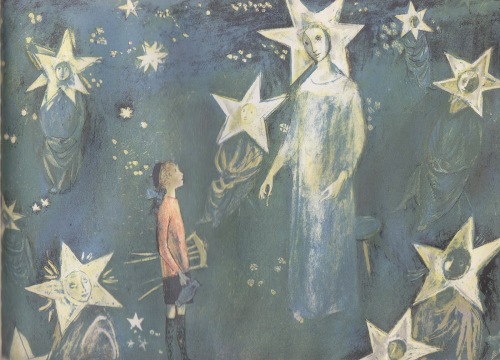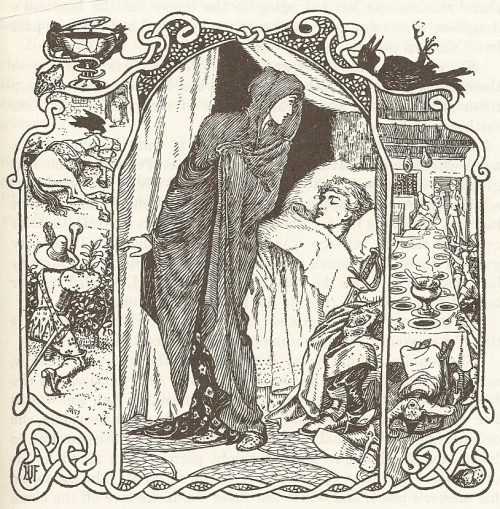026. Little Red Cap
*This post is part of A Grimm Project, a series of short fiction pieces using each of the Brothers Grimms’ Nursery and Household Tales as writing prompts. For more information about the project, click here.*
We pull our hoods up when we reach the house. The yard is dark except for the light from the kitchen window; we creep around the porch, the brightness drawing us like moths. Inside, we already know, is the granddaughter: thick-chinned, bag-eyed, preparing a supper. The old woman sleeps upstairs, but we’ve never seen her.
The worst we ever do is throw a clump of snow or dirt at the window. Once, we rang the doorbell on the porch, but the granddaughter, we learned that day, doesn’t answer the door. Halie, who stayed out back by the kitchen window, told us that at the sound of the bell, the granddaughter froze up and bit her lip and didn’t move for a full minute, her eyes sidelong at the front hall. Madeline thinks the granddaughter’s afraid of an evil ex-boyfriend; Jen says it’s bill collectors she doesn’t want to see.
Tonight, the granddaughter leans over the little dining table set in the middle of the kitchen, spreading Nutella on a piece of white bread. She pours a glass of cranberry juice and cuts it with water. She shakes pills from three different bottles and pours them from her hand into a short paper cup and places it all on a tray. Eliza says, let’s go. This is dumb. Eliza’s dumb. Not really, but she’s always afraid we’ll get caught when we go around peeking like this. Caught, or worse. We all heard about that girl who got shot asking for help after some car trouble. But that’s not our neighborhood. That’s not us.
Nutella, Madeline whispers. For dinner? Lame. Jen, who’s shorter than the rest of us, elbows us aside and pulls herself up with her hands on the windowsill to see better. The window frame creaks, and she jerks back down before the granddaughter can look up from her table.
Granny? we hear the granddaughter say. Her voice rises at the end of the word, and clips it into two sounds. Halie sniggers. Gran-nee? she laughs. We take it up, too, yipping as we prowl along the side of the house to the front, letting our sounds echo. We’ve had enough silence; now is the time of night for a little noise. Gran-nee! We run together up the street. Behind us, the granddaughter must hear, but we don’t care. Gran-nee, we cry. Gran-nee, gran-nee, gran-nee.
Cate Fricke
January 2015









